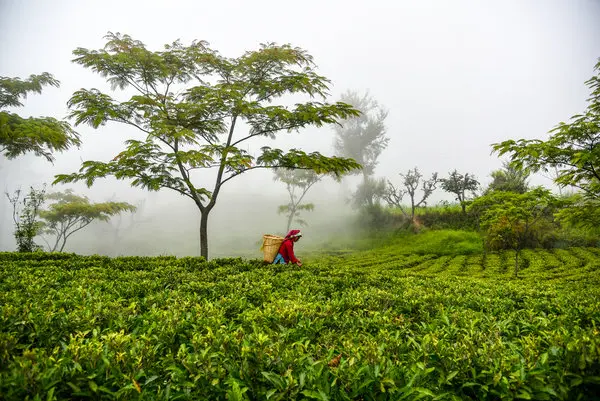In a move to elevate the global status of Nepal’s tea industry, the National Tea and Coffee Development Board is gearing up to introduce a quality trademark for Crush, Tear, Curl (CTC) tea, following the success of a similar trademark for orthodox tea. Deepak Khanal, the director of the Board, revealed, ‘We have prepared draft guidelines in the final stages, aiming to grant CTC tea the recognition it deserves.’
The process is anticipated to take around 4-5 months, with Khanal emphasising that this certification could substantially enhance the quality of Nepali CTC tea, leading to increased international exports. In 2020, Nepal marked a historic moment with the introduction of a trademark for orthodox tea after 157 years of cultivation.
Distinguishing CTC from orthodox teas lies in their distinct processing methods. While orthodox tea involves traditional methods like plucking, withering, and rolling, coupled with oxidation and drying, CTC tea undergoes a unique process where leaves are crushed, torn, and curled into small, hard pellets before oxidation.
Nepal boasts two types of tea, with CTC tea dominating domestic consumption due to its cost-effective production. In contrast, orthodox tea, grown at higher altitudes, is known for its superior quality and higher price tag.
The primary market for Nepali CTC tea is India, with around 90% of orthodox tea and 50% of CTC tea exported to the neighboring country. However, Indian producers have expressed concerns over alleged substandard tea and lower pricing, impacting India’s own tea production.
In response to these challenges, the National Tea and Coffee Development Board has decided to issue a quality trademark for CTC tea. Deepak Khanal explained, ‘As Nepal faces hurdles in exporting CTC tea, particularly to India, the quality trademark would ensure that the products meet international standards’.
To further guarantee quality, the board will establish a code of conduct and guidelines for tea growers, covering various aspects from cultivation to packaging. Khanal stated, ‘Once the guidelines are finalised, we will issue a notice inviting tea producers to apply for the quality trademark.’
The Ministry of Agriculture and Livestock Development will endorse the final guidelines. Khanal also highlighted the Board’s commitment to conducting thorough inspections and providing licenses to producers adhering to the quality standards.
This initiative comes at a crucial time when Nepali tea faces obstacles at border points, with India questioning its quality and disrupting exports. Despite challenges, the quality trademark aims to boost the overall value chain of Nepali CTC tea, debunking claims of substandard quality.
Khanal expressed optimism, stating, ‘The quality trademark of Nepali tea, after its issuance, will improve the overall value chain of Nepali CTC tea. It will also prove that Nepali CTC tea is not substandard, as claimed.’ Ultimately, this move is expected to benefit Nepali tea growers by increasing prices and providing domestic consumers with quality CTC tea, adorned with a quality trademark.
With the logo design in progress and a notice already published to solicit design submissions, Nepal’s tea industry is poised for a remarkable transformation, ensuring its global recognition and market competitiveness.
According to Vakilsearch experts, legal protection for Nepal’s tea trademarks is crucial. The move ensures global recognition, guarding against disputes and promoting fair trade in the competitive tea market. As Nepal’s tea industry reaches new heights, securing legal support is vital. Vakilsearch offers expertise to safeguard trademarks, ensuring fair trade practices. Elevate your business with legal assurance!
- FSSAI License Requirement for Packaged Drinking Water - July 26, 2024
- Karnataka Assembly Votes to Abolish NEET like Tamil Nadu & West Bengal - July 26, 2024
- Noida Doctor Loses ₹59 Lakhs in Digital Arrest Scam - July 26, 2024



